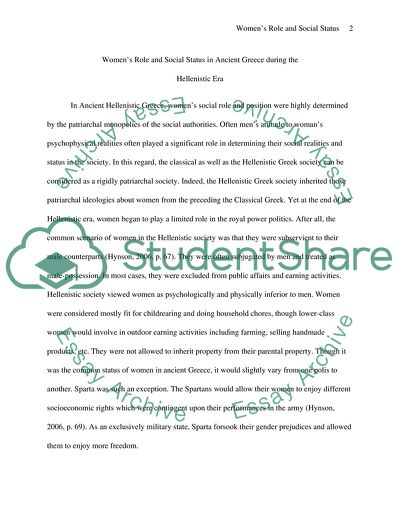Cite this document
(Womens Role and Social Status in Ancient Greece during the Hellenistic Era Literature review Example | Topics and Well Written Essays - 1250 words, n.d.)
Womens Role and Social Status in Ancient Greece during the Hellenistic Era Literature review Example | Topics and Well Written Essays - 1250 words. https://studentshare.org/social-science/1821530-the-hellenistic-world
Womens Role and Social Status in Ancient Greece during the Hellenistic Era Literature review Example | Topics and Well Written Essays - 1250 words. https://studentshare.org/social-science/1821530-the-hellenistic-world
(Womens Role and Social Status in Ancient Greece During the Hellenistic Era Literature Review Example | Topics and Well Written Essays - 1250 Words)
Womens Role and Social Status in Ancient Greece During the Hellenistic Era Literature Review Example | Topics and Well Written Essays - 1250 Words. https://studentshare.org/social-science/1821530-the-hellenistic-world.
Womens Role and Social Status in Ancient Greece During the Hellenistic Era Literature Review Example | Topics and Well Written Essays - 1250 Words. https://studentshare.org/social-science/1821530-the-hellenistic-world.
“Womens Role and Social Status in Ancient Greece During the Hellenistic Era Literature Review Example | Topics and Well Written Essays - 1250 Words”. https://studentshare.org/social-science/1821530-the-hellenistic-world.


